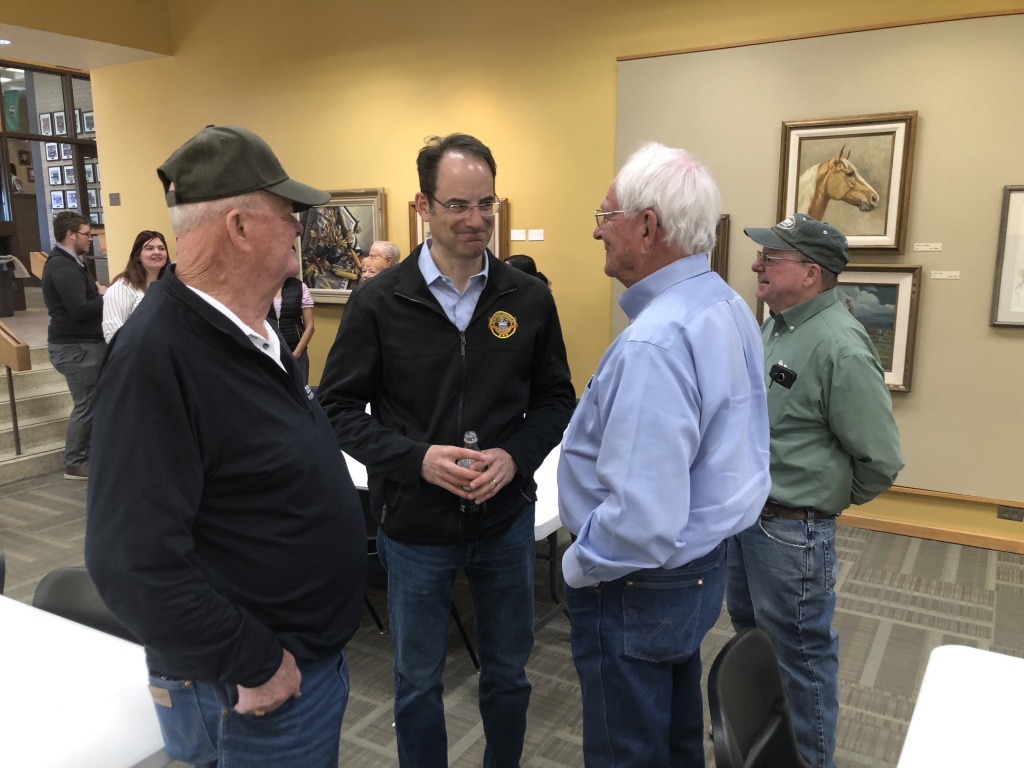The attorney general’s office will do all it can to protect Colorado’s water; that’s a promise made by Colorado Attorney General Phil Weiser during a stop in Sterling Wednesday morning.
Weiser was on a tour of northeast Colorado and met in Sterling with representatives of local government, law enforcement, education, mental health providers and others.
During the meeting, Weiser said he doubts the recently resurrected Perkins County Canal plan will ever see fruition. He said Nebraskans are as puzzled about Gov. Pete Rickett’s idea to complete the abandoned canal as Coloradans are.
The canal, which was started in the 1890s and then abandoned, would divert water from the South Platte River near Ovid and carry it into Nebraska for storage there. Ricketts recently breathed new life into the scheme and has secured around $50 million for a feasibility study.
“The Nebraska idea is not born of reasonable dialogue,” Weiser said. “We don’t know where it’s coming from, but it appears to be more (politically motivated) than any real need for water. We are going to work to protect our water.”
The AG said Coloradans shouldn’t be overly concerned about the Perkins project, calling it a “product of one moment in time.”
While water storage, conservation and creative allocation ideas are laudable, Weiser said, those ideas have to be good for everyone involved. He pointed to the plan to drill into the aquifer under the San Luis Valley and pipe water to Douglas County as the kind of “buy and dry” scheme that should be avoided.
“We gotta’ be pretty smart in how we invest in water infrastructure,” Weiser said. “We have to be all-in and build infrastructure the right way. We need to make sure that when we’re talking about communities’ future, the communities are actually at the table.”
Weiser’s second major priority is the continuing opioid epidemic, which has caused drug overdose deaths to skyrocket in Colorado. He said in 2021 Colorado lost more lives to drug overdoses than to auto crashes and gunfire combined. He said he is most concerned about fentanyl, which is being mass-produced in Mexico and smuggled into the U.S. in ever-growing quantities.
“We’ve got a lot of work to do on this epidemic. One thing we (have to) do is work together to provide treatment and recovery programs,” Weiser said.
That will take finding new approaches to treatment and to educating the public, especially teen-agers, on the dangers of drug overdoses.
On the topic of law enforcement, Weiser said the COVID pandemic has been especially hard on police officers and law enforcement in general.
“What we know is that we’re losing people from this critical profession,” he said.
The AG’s office is pushing to get more money for recruitment and retention of officers, and especially mental health treatment for first responders.
Weiser also spoke about improving safety in the prison system, both for inmates and staffers, and about getting better access to mental health for all Coloradans.

